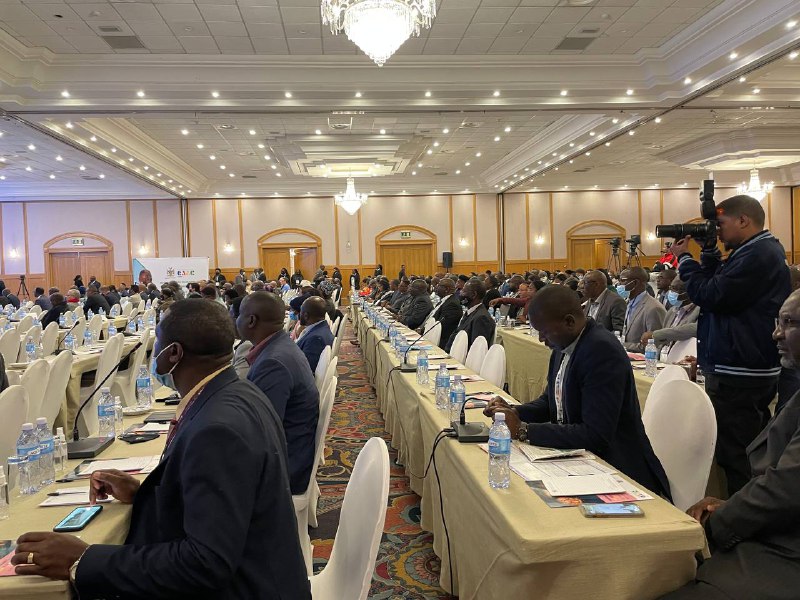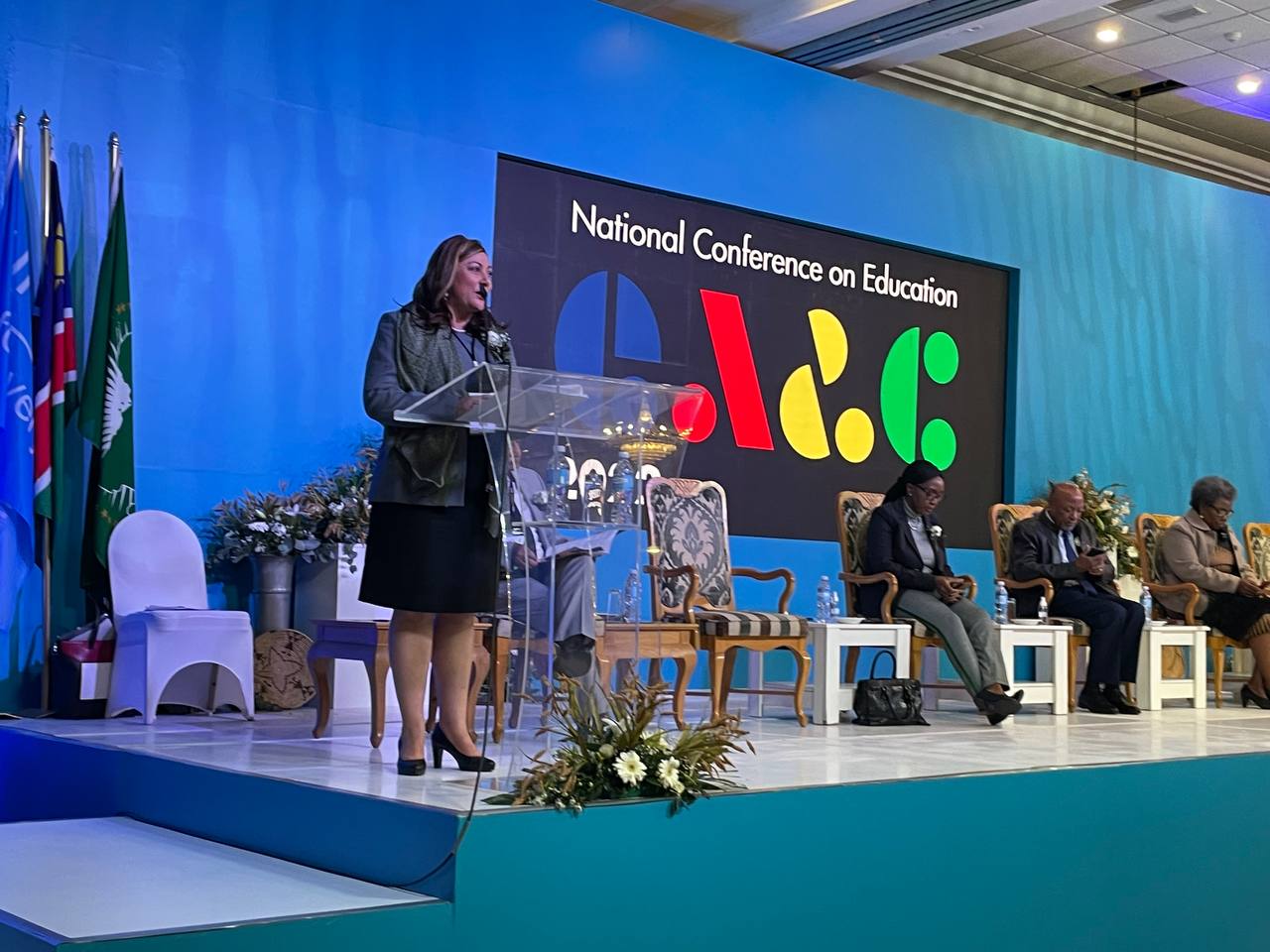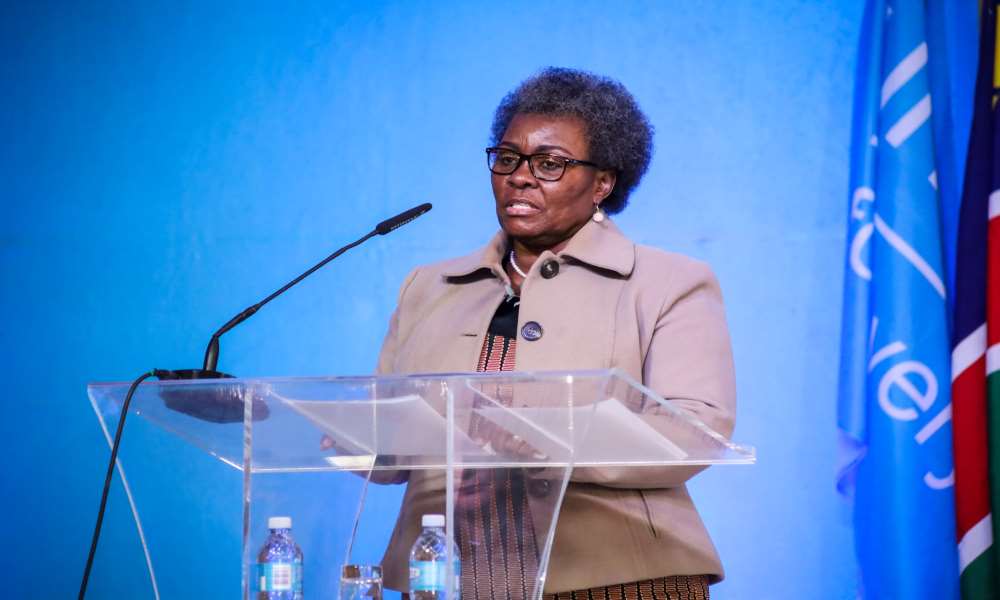'Educating the whole population is everyone’s responsibility'
National conference on education
Among the global challenges that have affected Namibia and its basic education system are public health challenges such as the pandemic and infectious diseases like HIV/Aids.
The education ministry, in collaboration with stakeholders, hosted a national conference on education from 2 to 5 August at Hotel Safari in Windhoek, under the theme "Transforming education towards inclusion and quality in the context of global challenges: re-imagining 2023 and beyond."
The theme links up with the UN Transforming Education Summit 2022, which will take place in September in New York, in the United States. The conference was aimed at identifying critical educational challenges and mapping out best practices to transform the education system in Namibia.
Sanet Steenkamp, the education ministry’s executive director, said that the theme of the conference was modified to reflect the impact of climate change.
"It also envisions addressing the widening learning gap among learners from different social-economic backgrounds, created by school closures and lockdowns over the past two years. Therefore, the focus is on the inclusion of learners from the disadvantaged, marginalised and learners with special needs."
The main objectives of the conference were to deliberate on the education system with regard to a number of transformative programmes; take stock of progress made in the implementation of the Sustainable Development Goals (SDG4); review the recommendations of the 2011 national conference on education; and provide an opportunity for Namibia to recommit and rededicate efforts to improve financing for education and to ensure that all children are in school and learning.
All included
The conference was preceded by regional consultations that took place between 30 May and 13 June, which were aimed at unpacking challenges affecting education and positive teaching and learning outcomes; obtaining public inputs through engagements and discussions.
All recommendations from the regions were consolidated.
The conference covered the entire education sector: from early childhood development; pre-primary and secondary education; vocational education and training; to higher education and adult and lifelong learning.
Participants included education experts, traditional leaders, religious leaders, non-government organisations (NGOs), learners, students, teachers, and school management teams, including school boards and parent representatives.
Developmental needs
On opening day, education minister Ester Anna Nghipondoka said among the global challenges that have directly affected Namibia and its basic education system are public health challenges such as the pandemic and infectious diseases like HIV/Aids, which have left many children orphaned. This in turn has resulted in child-headed families, school dropouts due to lack of parental support, teenage pregnancies, high failure rates, etc.
She said that the African Union (AU) and United Nations International Children's Emergency Fund (UNICEF) report on transforming education in Africa, indicates that the disruption in learning caused by the Covid-19 pandemic – during which more than one billion students globally stopped going to school at some point – has only worsened the global learning crisis.
The 2021 ‘State of the Global Education Crisis: A Path to Recover report’ (published jointly by UNESCO, UNICEF and the World Bank) stated that "if we do not take stock of our education system, this generation of students risks losing US$17 trillion in lifetime earnings in present value, or about 14 percent of today’s global GDP, because of Covid-19-related school closures and economic shocks."
The current reform, as proposed by the education conference of 2011, is aimed at making the education system more demand-driven by answering the developmental needs of the country in terms of skill sets to be acquired by learners at different ages and grade levels.
"It is designed to ensure improved access with retention and progressions," she said.
Private help
Namibia’s vice-president, Nangolo Mbumba, delivered the keynote address on behalf of Namibian President, Hage Geingob.
He said that through the millennium development goals, the UN helped to place the focus on education for all.
"The net enrolment rate in 2010 stood at 96.9% at junior primary and 49.8% at senior secondary, while in 2015 these reached 100% and 61.1% respectively," he said.
Mbumba said that private sources of finance are needed to assist to educate the nation, but this cannot be at the expense of equity.
"We cannot have a situation where the educational experience a child has in the Zambezi region is different from that in the Erongo region."
He added that private schools should not exclude "poorer learners, or learners they do not want to cater for. Educating the whole population is everyone’s responsibility."
The African Union’s Agenda 2063 commits the African continent to ensure that it has well-educated citizens and a skills revolution underpinned by science, technology and innovation.
The theme links up with the UN Transforming Education Summit 2022, which will take place in September in New York, in the United States. The conference was aimed at identifying critical educational challenges and mapping out best practices to transform the education system in Namibia.
Sanet Steenkamp, the education ministry’s executive director, said that the theme of the conference was modified to reflect the impact of climate change.
"It also envisions addressing the widening learning gap among learners from different social-economic backgrounds, created by school closures and lockdowns over the past two years. Therefore, the focus is on the inclusion of learners from the disadvantaged, marginalised and learners with special needs."
The main objectives of the conference were to deliberate on the education system with regard to a number of transformative programmes; take stock of progress made in the implementation of the Sustainable Development Goals (SDG4); review the recommendations of the 2011 national conference on education; and provide an opportunity for Namibia to recommit and rededicate efforts to improve financing for education and to ensure that all children are in school and learning.
All included
The conference was preceded by regional consultations that took place between 30 May and 13 June, which were aimed at unpacking challenges affecting education and positive teaching and learning outcomes; obtaining public inputs through engagements and discussions.
All recommendations from the regions were consolidated.
The conference covered the entire education sector: from early childhood development; pre-primary and secondary education; vocational education and training; to higher education and adult and lifelong learning.
Participants included education experts, traditional leaders, religious leaders, non-government organisations (NGOs), learners, students, teachers, and school management teams, including school boards and parent representatives.
Developmental needs
On opening day, education minister Ester Anna Nghipondoka said among the global challenges that have directly affected Namibia and its basic education system are public health challenges such as the pandemic and infectious diseases like HIV/Aids, which have left many children orphaned. This in turn has resulted in child-headed families, school dropouts due to lack of parental support, teenage pregnancies, high failure rates, etc.
She said that the African Union (AU) and United Nations International Children's Emergency Fund (UNICEF) report on transforming education in Africa, indicates that the disruption in learning caused by the Covid-19 pandemic – during which more than one billion students globally stopped going to school at some point – has only worsened the global learning crisis.
The 2021 ‘State of the Global Education Crisis: A Path to Recover report’ (published jointly by UNESCO, UNICEF and the World Bank) stated that "if we do not take stock of our education system, this generation of students risks losing US$17 trillion in lifetime earnings in present value, or about 14 percent of today’s global GDP, because of Covid-19-related school closures and economic shocks."
The current reform, as proposed by the education conference of 2011, is aimed at making the education system more demand-driven by answering the developmental needs of the country in terms of skill sets to be acquired by learners at different ages and grade levels.
"It is designed to ensure improved access with retention and progressions," she said.
Private help
Namibia’s vice-president, Nangolo Mbumba, delivered the keynote address on behalf of Namibian President, Hage Geingob.
He said that through the millennium development goals, the UN helped to place the focus on education for all.
"The net enrolment rate in 2010 stood at 96.9% at junior primary and 49.8% at senior secondary, while in 2015 these reached 100% and 61.1% respectively," he said.
Mbumba said that private sources of finance are needed to assist to educate the nation, but this cannot be at the expense of equity.
"We cannot have a situation where the educational experience a child has in the Zambezi region is different from that in the Erongo region."
He added that private schools should not exclude "poorer learners, or learners they do not want to cater for. Educating the whole population is everyone’s responsibility."
The African Union’s Agenda 2063 commits the African continent to ensure that it has well-educated citizens and a skills revolution underpinned by science, technology and innovation.







Kommentar
Allgemeine Zeitung
Zu diesem Artikel wurden keine Kommentare hinterlassen